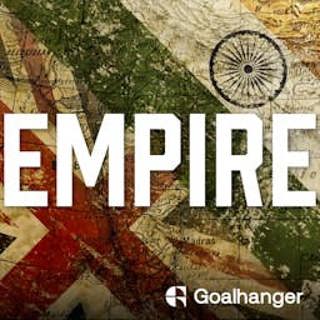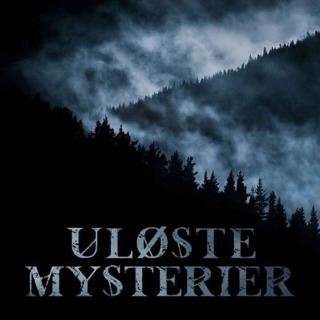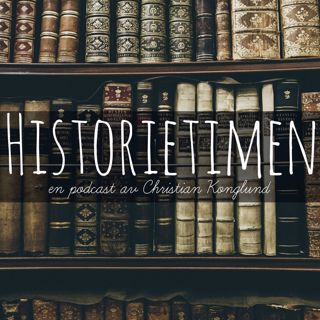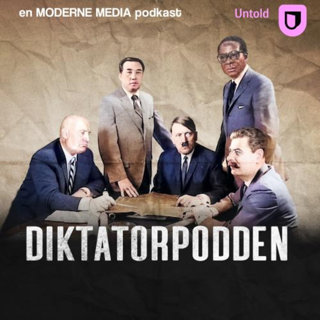
217. Zebras and Zodiacs: Jahangir’s Art Revolution
Often overshadowed by his son’s architectural wonders like the Taj Mahal, Emperor Jahangir was a true connoisseur of beauty. His reign witnessed a flourishing of art, architecture, and craftsmanship through his patronage of impressive workshops of artists who created vibrant masterpieces. Jahangir continued expressing his love of the natural world through the paintings he commissioned: from zebras to squirrels to exotic birds. And women were not excluded from his world of art. His powerful wife Nur Jahan oversaw architectural projects like the “Baby Taj”, and female painters at court documented the intimate life of the imperial harem. But beyond documenting the world around him, how did Jahangir use art as propaganda, and what is the meaning behind the mysterious zodiac coins he created? Listen as William and Anita are joined by Susan Stronge, curator of the V&A exhibition, The Great Mughals: Art, Architecture and Opulence, to discuss the visual culture of the court of Jahangir. Twitter: @Empirepoduk Email: empirepoduk@gmail.com Goalhangerpodcasts.com Assistant Producers: Anouska Lewis & Aaliyah Akude Producer: Callum Hill Exec Producer: Neil Fearn Learn more about your ad choices. Visit podcastchoices.com/adchoices
2 Jan 48min

216. Seeds of British India: England’s First Ambassador to the Mughal Court
What do you buy for a man who has everything? Thomas Roe is tasked with wooing the Emperor Jahangir. On March 6th 1615, he sets sail from England on the 8 month voyage to the Mughal Empire, home to one fifth of the world’s population. He has been sent by James I and the East India Company on a diplomatic mission to improve trading relations. The English envy the fabulously rich Emperor Jahangir whose personal wealth is ten times that of the national revenue of England at the time. Expecting to be greeted as a diplomat, Roe arrives in India and is forced to undergo a customs check. He is ill and accompanied by a badly behaved cook and a drunk chaplain. He hasn’t even reached court in Ajmer and everything seems to be going wrong. Will he succeed in his mission to win over Jahangir? Listen as Anita and William are joined by Nandini Das, author of Courting India: England, Mughal India and the Origins of Empire, to discuss the grumpy ambassador’s stay at Jahangir’s court and how it shaped the East India Company. Twitter: @Empirepoduk Email: empirepoduk@gmail.com Goalhangerpodcasts.com Assistant Producers: Anouska Lewis & Alice Horrell Producer: Callum Hill Exec Producer: Neil Fearn Learn more about your ad choices. Visit podcastchoices.com/adchoices
31 Des 202454min

215. Jahangir: A World of Light And Darkness
Prince Salim grows up in the continuously expanding empire of his father, Akbar. The young prince is being primed to take on this legacy, but he is more interested in studying the natural world with intense curiosity by dissecting animals and observing their mating rituals. Later, with Akbar dead and Salim ready to rule, he fights off claims to power from his own son, blinding him as punishment for his insubordination. In 1605, Prince Salim becomes Emperor Jahangir, but is it his love of nature or his brutish desire for revenge that characterises his rule? Is he more David Attenborough or Hannibal Lecter? Join Anita and William as they debate this question and explore the early life of the fourth Mughal Emperor. Twitter: @Empirepoduk Email: empirepoduk@gmail.com Goalhangerpodcasts.com Assistant Producers: Anouska Lewis & Alice Horrell Producer: Callum Hill Exec Producer: Neil Fearn Learn more about your ad choices. Visit podcastchoices.com/adchoices
26 Des 202445min

214. The Empire of Frankincense & Myrrh
“The Nabateans are a silent partner in everything that goes on in the high summer of the Ancient period” - Bettany Hughes By the time of Jesus’ birth, a mysterious empire had built its wealth through trading two of the gifts present at the Nativity: frankincense and myrrh. Aromatic crystals harvested from the sap of gnarled trees, frankincense and myrrh were highly desirable commodities known as the tears or the breath of the gods. Based along the coast of the Red Sea, the nomadic Nabatean people were engineers, mariners and savvy traders, and they cleverly placed themselves as the middlemen in the trade of this incense. The Nabateans gave the world Arabic, and had a kingdom that even Alexander the Great could not siege - so why do so many of us know nothing about them? Listen as Anita and William are joined by Bettany Hughes to discuss how the Christmas gifts of frankincense and myrrh powered a mysterious and innovative kingdom… Twitter: @Empirepoduk Email: empirepoduk@gmail.com Goalhangerpodcasts.com Assistant Producers: Anouska Lewis & Evan Green Producer: Callum Hill Exec Producer: Neil Fearn Learn more about your ad choices. Visit podcastchoices.com/adchoices
24 Des 202445min

213. How Three Wise Men Became Three Kings
The story of the Three Wise Men has been reinterpreted since it was first written down. The gift-bearing visitors to the newborn Jesus were initially described as “Magi”, meaning Persians of a priestly caste, but by the 4th century they were given the individual names of Gaspar, Melchior and Balthazar. And in Medieval Europe they were described not as Three Wise Men, but as Three Kings. Yet there’s more to the evolution of the Magi than Western ideas, in Syriac Christian traditions there are up to 24 Magi, and in the Ethiopian church they are named Hor, Karsudan, and Basanater. So how have these ideas developed over time? Listen as William and Anita are again joined by Professor Lloyd Lewellyn-Jones to discuss the evolution of the story of the Magi, and the influence of British imperialism on their symbolism… Twitter: @Empirepoduk Email: empirepoduk@gmail.com Goalhangerpodcasts.com Assistant Producers: Anouska Lewis Producer: Callum Hill Exec Producer: Neil Fearn Learn more about your ad choices. Visit podcastchoices.com/adchoices
19 Des 202442min

212. Who Were The Three Wise Men?
The truth behind the story of the Three Wise Men has more connections to empire than many of us realise… Featured in every Nativity scene in school plays, churches, and art around the world, the Three Wise Men are key characters in the Christmas story. They are only mentioned once in the Bible, appearing in Matthew’s gospel described as the Magi - meaning Persians of a priestly caste from Persia. But who were they? Where were they from? And what was the meaning behind their gifts? Listen as Anita and William are joined by Professor Lloyd Lewellyn-Jones to discuss how the story of the Magi highlights the intermingling of Persian and Jewish culture at the time, as well as tensions between two great empires: the Parthians and Rome… Twitter: @Empirepoduk Email: empirepoduk@gmail.com Goalhangerpodcasts.com Assistant Producers: Anouska Lewis & Becki Hills Producer: Callum Hill Exec Producer: Neil Fearn Learn more about your ad choices. Visit podcastchoices.com/adchoices
17 Des 202442min

211. A Beautiful World: The Art of Akbar
As a dyslexic child, Akbar explored his curiosities about the world through visual wonders, and by having literature read aloud to him. As an adult, his love of art evolved as he became the patron of a multicultural group of calligraphers, painters, poets and more. A now renowned Mughal artistic style developed from his court, with iconic paintings full of bright colours and meticulous details. How did Akbar shape this style? And how was his art and architecture impacted by the religious tolerance he promoted? Listen as William and Anita explore the art and architecture that emerged from Akbar’s court. Twitter: @Empirepoduk Email: empirepoduk@gmail.com Goalhangerpodcasts.com Assistant Producer: Anouska Lewis Producer: Callum Hill Exec Producer: Neil Fearn Learn more about your ad choices. Visit podcastchoices.com/adchoices
12 Des 202447min

210. Akbar the Great: Revolutionising Religious Tolerance
Raja Birbal is a man of such exceptional wisdom and wit that he will become the stuff of legends. Birbal is just one of the Nine Gems Akbar surrounds himself with, remarkable people who will help the emperor enact a series of wide reaching and radical reforms. The ruler takes it upon himself to absorb the teachings of all religions he has access to, which includes the Portuguese Jesuits who are making Goa their home. In rejecting tradition in the pursuit of reason, how will Akbar foster open minded religious debate? And how, amidst all this peaceful dialogue, does he still manage to wage war and expand his kingdom? Listen as William and Anita discuss how Akbar revolutionised his governance and promoted religious tolerance in his realm. Twitter: @Empirepoduk Email: empirepoduk@gmail.com Goalhangerpodcasts.com Assistant Producers: Anouska Lewis & Alice Horrell Producer: Callum Hill Exec Producer: Neil Fearn Learn more about your ad choices. Visit podcastchoices.com/adchoices
10 Des 202442min






















